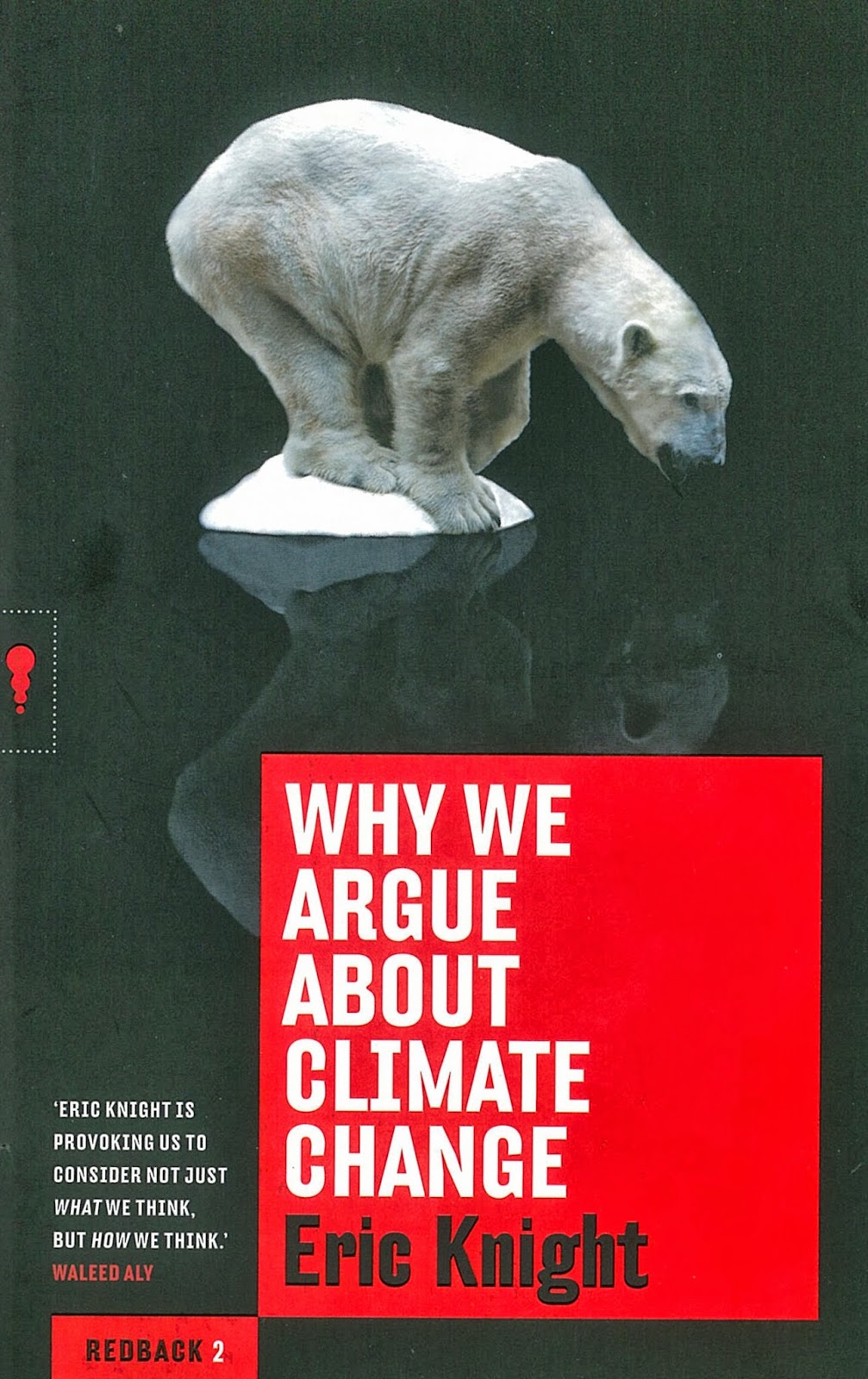 Staff Review by Chris Saliba
Staff Review by Chris SalibaIn this well considered short book Eric Knight argues that maintaining the individual’s economic freedom is the best way to combat climate change.
This book is part of a new series by Black Inc. called Redbacks. They’re sort of like the Quarterly Essays, but a bit longer and are printed in a regular book format. Each one explores a particular issue and is about 150 pages long.
Trying to unpick rigid attitudes to climate change is like trying to diffuse a bomb. Despite the fact that climate change is a scientific issue, it fuels high emotions on all sides of the debate. Eric Knight does a good job here of giving a dispassionate over view of the science and politics of climate change. There are, as far as I can see, two major points the book has to make. Firstly, there it too much moralising around climate change. This has been one of the left’s major blunders: trying to impose feeling of guilt as a spur to action has made people resentful and angry.
Secondly, there has been too much pessimism about potential solutions to the problem. The greatest offender in this regard is Clive Hamilton. Knight describes Hamilton’s view of the subject as Malthusian, after the English cleric and scholar Thomas Robert Malthus (1766-1834) who famously warned that population growth would outstrip natural resources. Malthus predicted mass starvation and death. His views were enormously influential, but the thing is, none of his dire predictions came to pass. New technologies and efficiencies were discovered; populations actually grew.
Too many left wing thinkers on climate, according to Knight, take this Malthusian view. Their argument is that we need to reduce consumption, the implication being that we are shamefully wasteful. Knight, on the other hand, maintains citizens should still be encouraged to consume as much as they wish. Economic freedom should remain the imperative. Who has the right to tell anyone to reign in their consumption because it is morally suspect?
How can we continue to consume and at the same time reduce our emissions, as the science tells us we must? Knight argues that markets are the solution. They will create consumables that will both appeal to shoppers and at the same time deal with climate change. The only fly in the ointment is the often idiosyncratic nature of renewable energy technologies. They must be designed to fit particular locations – whether sunny or windy or overcast – and hence can’t be ‘scaled up’ into a mass market model. This is where government will have to enter the equation by giving a leg up to new and emerging technologies. Governments will have to pump money into research and development. How this will be done, that is, how political parties can go to elections promising to spend money on renewable technologies on the scale required without scaring off votes isn’t really explored.
Why We Argue About Climate Change is an optimistic book that makes you think the solution to all climate problems are just within our reach, if only we will work a bit harder and think a little more imaginatively.
This is a rewarding and well thought out essay that offers much interesting food for thought, even if some of its arguments about the power of markets to solve problems seem too optimistic.
Why We Argue About Climate Change, by Eric Knight. Published by Black Inc. ISBN: 9781863956086 RRP: $19.99
No comments:
Post a Comment